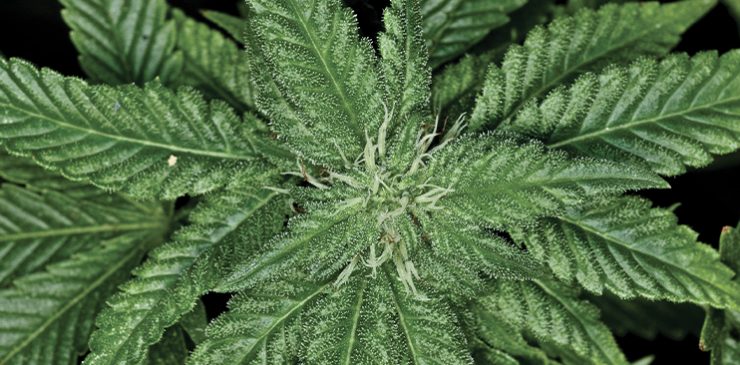Legalization has marked a step forward in the accessibility of cannabis and the quality of medical-grade products. The national conversation about cannabis for medical use has changed rapidly in the past few years alone — clarifying social misconceptions and solidifying its place in our culture.
This is great news for those who use cannabis for medical purposes and struggled to acquire a quality product.
The period after a spinal cord injury is a difficult transition that has implications impacting mental and physical health. As a result, it is common for those with an SCI to experience depression, neuropathy and spasticity, amongst other issues.
“My doctor prescribed medical marijuana and it eventually helped me reduce my opiate intake and helped with pain, sleeping, and appetite. It made a big difference in my life.”
The use of cannabis to alleviate symptoms stemming from spinal cord injury is a lot more common than you might think. Pain can be debilitating and impact one’s quality of life. The majority of those with an SCI report having to deal with chronic pain in one way or another, usually through prescription pharmaceuticals. However, an increasing amount of people are turning to medical cannabis.
Chris K. sustained a spinal cord injury resulting in quadriplegia at the C4 level, he was discharged from Lyndhurst in 2017. He describes his experience with cannabis post-SCI,
“I was on a lot of opiates for the first 3 years. I suffered from chronic constipation and my parents noticed I was drowsy throughout the day and when I missed a dose of my meds it made the pain worse. My doctor prescribed medical marijuana and it eventually helped me reduce my opiate intake and helped with pain, sleeping, and appetite. It made a big difference in my life.”
There are many positive accounts of medical cannabis being a useful supplement to one’s pain management and post-SCI symptoms and that number is exponentially increasing. A National Cannabis Survey run by Stats Canada in 2019 found that 1 in 5 Canadians have reported trying cannabis at one point.
This positive change has extended to the medical field, as well. Dr. Eldon Loh is an Associate Professor at Western University and a consultant physiatrist in the Spinal Cord Injury and Brain Injury Programs at Parkwood Hospital. He says, “I think that there is a greater willingness among physicians to explore cannabis as an option for treatment, especially when standard treatments fail. Also, the general public is more aware of cannabis and its possible role in treatment…so I think there are more discussions between doctors and their patients about cannabis in general.”

Medical cannabis has been documented to help alleviate other SCI-symptoms, such as spasticity and depression. Masood A. sustained a spinal cord injury after falling from a roof he was working on in 2014. He describes his experience with medical cannabis, “I grew up religious. I always saw weed as a drug. After my accident I lost a lot of weight and became really depressed. Out of boredom I tried an edible and I was happy and laughing. I had an appetite. I think its not as bad as people think but everyone is different.”
Cannabis legalization has greatly benefited research; Graham Wolch Director, Medical Business of Aphria, says “Over the past decade, countries from around the world have been legalizing medical cannabis and it is estimated that more than 15% of the world’s population can now have access to medical cannabis. Legalization has led to a drastic increase in research regarding therapeutic benefits of medical cannabis. Prior to 2009, a search of scientific literature related to cannabis on PubMed yielded less than 10,000 results and if we look at that search a decade later, in 2019, it yielded over 21,000 results! Research is key to understanding the therapeutic benefits of medical cannabis and how to safely use it to manage chronic conditions effectively.”
How Cannabis Works in Pain ManagementCannabinoids, such as THC, act on cannabinoid receptors that are located throughout the body and are involved in relaying and processing source: https://aphria.ca/blog/cannabis-chronic-non-cancer-pain/ |
In Ontario there is better accessibility and availability of numerous legal options. You can access cannabis directly online from the Ontario Cannabis Store. Their website features their available products that now include edibles, oils, tinctures, vaporizers, and dried flowers. These are select products from various sources, such as licensed cultivators, processors and sellers of cannabis.
Alternatively, you can select a specific licensed producer which you can find on the official Canada.ca licensed producer list. The benefits are two-fold as you get a better and more specific selection of products that cater to not only your medical needs but your personal sensibilities — such as, The Green Organic Dutchman’s mission statement of exclusively growing plants in living soil,
Aphria’s commitment to growing in Greenhouses, or Avana’s pledge to provide premium cannabis for the Canadian market. Further, these individual producers allow you to cultivate a relationship and they help to make cannabis and consuming it for medical purposes easier to understand for patients and health care professionals alike, allowing you to optimize the therapeutic benefits of medical cannabis for your needs.
It’s important to emphasize the individual decision making required to try cannabis for medical purposes. Everyone reacts differently and you must consult your doctor first. It is important to note that there is a wide gap between clinical evidence and practice on an individual basis, Dr. Eldon Loh observes that “There is very little research and guidance that informs our decision-making about cannabis for pain management. There are a lot of assumptions and opinions from clinicians and patients about what are effective formulations for pain, but outside of individual experience, we don’t have definitive studies and answers for this … However, I think given how difficult it is to manage neuropathic pain after SCI, many people would agree, myself included, that it can be worth a try. You should discuss risks and benefits with your physician so that you can minimize risk from using this.”






